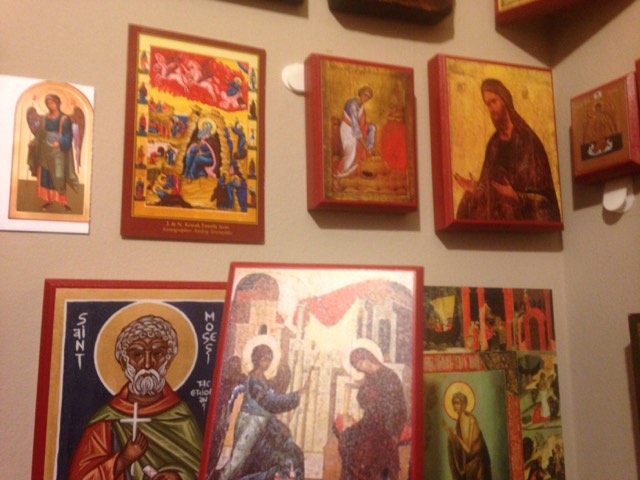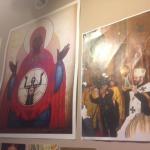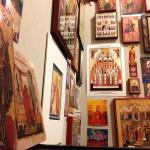
I don’t know how it is for Protestants in communities in which I did not grow up, but in the ones that I have experienced, especially the Cantonese ones, there are basically two zero-sum orientations toward church: gullibility and cynicism. Either one is taken in by all the superstitious nonsense about divine intervention and angelic engagements that floats around in popular practice, or one adopts a cynical skepticism. It would be easy to mistake the cynics as liberals, but they do not, as Sir Humphrey puts it in that wonderful episode of Yes Prime Minister about Anglicanism, become modernists in the sense that they don’t believe in God anymore. They most certainly do, or at least believe that they do, and unlike ‘atheist clergymen’ that the British satire mocks as ‘continuing to draw a stipend,’ they are sincere about that belief. It is just that they also have faith in their own intelligence and have seen enough charlatans to be suspicious of claims about the work of the supernatural in stories that just feel a bit too magical.
Most of my Cantonese Protestant friends usually did me the favour of acknowledging my intelligence, so when it came to being slotted among the gullible and the cynical, I was typically placed in the latter category, which meant that they thought that they could be as irreverent as they wanted around me. It thus came as a surprise back in the good old days when I was discerning a call to ordained pastoral ministry in an evangelical setting, I decided to do an internship at a church they knew derisively as the ‘AAA’ church: Angels and Archangels. That was not its actual name, but suffice it to say that not even its Anglicanism could save it from the group of gullibility. The rector had been a liturgical rock star in Hong Kong, translating Rite II of the Book of Common Prayer’s Holy Eucharist service, which features in the transition from the preface to the Sanctus the formula with angels and archangels and with all the company of heaven. As a charismatic, he had always felt very moved by this formula of angels and archangels and used to pray prophetically, often with tongues, over people that they would be surrounded by them. When some people called him superstitious, he would double down and say that angels are real and that they really do protect us. The cynics blew him off, and they were surprised that I didn’t.
What the cynics don’t know is that the first song I learned in preschool was a song about angels. It was the spiritual ‘All Night, All Day.’ My English was not very good then. I was three, and I had grown up speaking Cantonese. I could read English since I was two, but it was inflected with my mother’s Hong Kong mannerisms, something I used to be ashamed of but that now I have fully adopted as my own way of speaking and writing. Hearing and speaking the language was a little harder, and as it was, I didn’t know what the teacher, Miss Linda, was talking about when a group of us preschoolers gathered around her as she sat on a kiddie chair and sang to us: All night, all day, angels watchin over me. All night, all day, angels watchin over me.
I remember the song because I could not understand it. I think Miss Linda knew that and used it as an opportunity to teach the class what night and day were. Miss Linda is the first teacher whose instruction I remember. When I could not understand English, she helped me understand. I am told that my mother was reportedly concerned that my English was bad going into my second year of preschool. I learned later that Miss Linda paid special attention to me as a result. By way of pedagogical conspiracy, she made me and a cute blonde the Joseph and Mary figures in the upcoming Nativity play. One time, during rehearsal, another boy was bullying my Marian figure. I shouted, Don’t touch my wife! Shortly thereafter, Miss Linda told my mom that my English was fine.
What I am also saying is that the first beings I learned about when I first learned English in school were angels. This kind of knowledge is not dismissed flippantly, even at the risk of seeming gullible in the eyes of the cynics. I know what the cynically minded Chinese Christians think of folks who talk about angels and archangels all the time, as there is a magazine purportedly speaking for angels and their hearts that is the mouthpiece of an organization in Hong Kong that reportedly swindled thousands of dollars out of Chinese Protestant churches around the world for a pet project to find Noah’s Ark on Mount Ararat, and now is making the same kind of attempt to film a documentary on Christianity along the historic Silk Road to be broadcast on official Chinese state-run media. Insistence on the validity of angels and archangels and their watching over us all night and all day is framed as the talk of superstition, and one has to be careful not only to guard one’s mind against such delusions, but also one’s pocketbook against such charlatans.
But I always had a sense of the supernatural as a kid, and angels and archangels factored into it strongly. The bigger trouble lay in figuring out how it worked, partly because there tended to be a discrepancy between the popular portrayal of angels on shows like Touched by an Angel (which, if I can put down here as a matter of public record, remains one of my guilty pleasures — I am a sucker for religious kitsch, I know it, and I enjoy it, especially when it is theologically suspect, if not sometimes heterodox) and biblical accounts of their action in the world. I came to understand that angels existed, mostly because they were talked about in church as guiding biblical figures like Joseph, both the one in Genesis and the one in Matthew’s infancy narrative. The angel of the Lord would appear to my favourite biblical characters: Joshua, Gideon, David, Samson’s parents. The angel Gabriel appeared to Mary. Daniel saw the Archangel Michael fighting Satan, and the Apostle Jude writes in his epistle that in a dispute with Satan over the body of Moses, Michael rebukes the Accuser in the name of the Lord. I did not know the story of the angel Raphael in the Book of Tobit because the only time I heard about it was when my Filipino Catholic friend told me he had learned about it in catechism class and I prayed for him because I was afraid he was adding books to the Bible and would be cursed by God.
The trouble is that angels and archangels, as the split between the gullible and the cynical shows, were part of a longstanding evangelical debate about what exactly they do. An angel might have appeared to Jim Houston at Oxford to start Regent College in Vancouver by way of Pacific Rim outreach, but what about the rest of us? I remember debating with some evangelical friends about the existence of guardian angels. Aside from the obvious anti-Catholicism of the contention, the concern was that we might be paying more attention to the angels than to God himself. I kept my reading of Tolkien’s Silmarillion quiet around these people; I think I may have once mentioned that the Ainur, the divine spirits known as the Valar and Maiar, were angels, and an evangelical balked. I shut up. They had taken away Warcraft II already. They could not have Tolkien too.
One compromise was to think of the angels as metaphorical beings. The term, after all, just means messengers. They are sent to bring messages from God, like Gabriel to Mary. I liked that, but there was one time that I was sitting in an Asian American evangelical praise-and-worship service, one of those gatherings by night where the intimacy of the guitar creates a truly Jesus is my boyfriend environment, and I resented the whole thing because I was on the hymns side of the evangelical worship wars (I could only sing ‘I could only sing of your love forever’ so many times), until I closed my eyes in frustration and then heard something strange. It was some women, probably in high school, singing a chorus in unison. They had not been there when I closed my eyes, but I heard them clearly and distinctively. Keeping my eyes closed, I wondered, Is that the sound of the angels? Probably not, I muse today, but I have also never heard anything like it. Thinking about it may be a bit embarrassing, as it would be me as an Eastern Catholic admitting to having been moved by contemporary evangelical worship music, but I do that enough on the blog that I am not at all embarrassed by this reflection.
I brought all of this incoherent reflection on angels and archangels into the Eastern Catholic catechumenate. As we began, my spiritual father recommended that I use the Jordanville Prayerbook, the one published by the Russian Orthodox Church Outside Russia (ROCOR) monastery in upstate New York. He said that praying it would be its own kind of catechesis, appealing to the formulation that I had learned as an Anglican – lex orandi, lex credendi, the law of prayer is the law of belief. As I prayed it, I discovered prayers to my guardian angel, as well as a canon to the angel. I am not sure that my spiritual father intended me to be catechized about the angels, but it was so interesting what the role of the guardian angel was in the prayers: as someone who guards against temptations of the enemies and someone whom I might offend by my passions. Of course, I also raised an eyebrow in the final prayer of the canon where there is an appeal to get me through the ‘aerial tollhouses,’ which I confirmed with my more intelligent Orthodox friends is not a thing. I will not comment on what Seraphim Rose was high on when he wrote about it, but I will say that even my submission to mystagogy has its limits. I may not be cynical, but I sure hope that I am not gullible.
In Chicago, the parish that I attend regularly for Divine Liturgy is named for Holy Michael the Archangel. It is the poorest parish in the entire eparchy, and after a history of being ignored, it was the first temple that our Bishop Benedict visited when he arrived in Chicago. It is the site where we hope to establish a social justice mission, and it is from their silver anniversary that I obtained my icon of the Archangel, pairing it then with my holy guardian angel in my beautiful corner. I am told that the Latins have a prayer to the Holy Archangel Michael that they think will protect the church from satanic invasion, and there is something biblical to that, as the references to Michael in Scripture always feature him leading the angelic armies against the devil. But I like to think of St Michael’s as the next step in my catechesis about the angels, forcing me to think about what is being guarded by them and what messages they convey to me. Is it not, I reflect, from the danger of this dichotomy between gullibility and cynicism? Are not both of these orientations toward the supernatural ideological, one requiring wholesale belief in the stupidest of superstitions and the other writing it all off to display one’s superior intelligence? Are not both symptomatic of passions that form knots in the heart to prevent a pure love for God?
In that sense, I offer one final reflection. There was an unfortunate situation a week ago at the Divine Liturgy when, in a case of misunderstanding, a member of our parish turned away a homeless black man. We were mortally afraid for our souls when we realized that that had happened. What if, as the parables reference, we had turned away Christ himself? We felt that we had to repent, but we were honestly a little lost.
Then, yesterday, something strange happened. Members of our temple were grabbing tea after lunch in Uptown, which is far away from our south side temple, and a homeless black man walked into the shop asking for money. Everyone turned him away, and I attempted to refuse too, loathe as I am to give someone money inside the premises of a business. He then looked straight into my eyes and said, Don’t you go to church? Are you not a Christian? Don’t you recognize the face of Christ in me?
I was cut to the heart. I got out my wallet and said, If you can say that, I must give this to you. I gave him two dollars; it’s within the ballpark of what I usually give to those asking for alms, and he walked out.
I was shaken by the encounter, and to add to the freakiness of it all, a friend who was with me told me that he was speaking Chinese. I had no idea. Come to think of it, I was not wearing any religious paraphernalia, and I had given no indication in that space that I was a Christian. All I know is that I understood at that moment that what repentance unto seeing Christ in the face of the poor would look like for me as a member of the parish is to recognize how far away I myself am from that recognition, that I need to be part of the parish named for Holy Michael the Archangel because my own bourgeois tendencies exacerbate my sinfulness and that I need to be saved from my passions.
Now I am sitting here writing this post after that encounter. The thought has occurred to me that perhaps that man in the tea shop was an angel. I will have to sit with that, as it is true that he brought a message from the Lord that revealed to me my own passions and guarded me from the works of the devil. But truly, all I know, in the words of Jacob who saw the angels and archangels ascending and descending on the Lord, is that I was encountered by God in the face of the poor and the abject, and I, I did not even know it.
All night, all day, angels watchin over me, my Lord. All night, all day, angels watchin over me.
These reflections on the icons in my beautiful corner compose the series I am writing for this year’s St Philip’s Fast in preparation for the Feast of the Nativity, beginning on the Old Calendar as I am in Chicago and switching back to the New Calendar when I return to Richmond in mid-December. They are attempts to account for my process of conversion in the Kyivan Church without discounting the Chinese Christianity of my Protestant past. This post is the fifth.
The previous posts are on the San Damiano Cross, Rublev’s Trinity, the relation of the Black Madonna to the Oranta of Kyiv, and the Sinai Pantocrator in relation to the Dormition.












